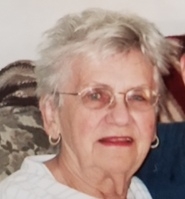

The “secret shopper” strategy may have missed some rehabs that provide the medication, King acknowledged. “These families have to do a lot of legwork,” King said.
#OBSERVER DISPATCH SALE ADS UPDATE#
To update or correct newspaper advertising information on this page, please use the link. Caroline King, an emergency medicine resident at Yale University in New Haven. For more advertising rate information, or to place an ad, please contact the advertising department at (315) 792-5000. The researchers found youth rehabs were just as likely to offer art, music or horse therapy as they were to offer buprenorphine.īased on their results, the average parent would have to make nine phone calls to find a facility offering the medicine to a 16-year-old, said study co-author Dr.

The 160 centers in the study were not identified. They ran into wrong numbers, adults-only facilities and a few that didn’t answer the phone. 1:00 A panel of federal judges last month upheld a lower court decision to dismiss a defamation lawsuit against the Utica Observer-Dispatch and several members of its newsroom.

In the study, the “secret shoppers” called more than 300 facilities listed on a government website as providing residential care for teens. Residential care is not the only alternative, he said, and parents should start by getting an evaluation from an addiction specialist. That change may improve access, said Levounis, who was not involved in the research. The survey was done last year, before a new law eliminated the need for doctors to get a special waiver to prescribe it. Other research suggests only two-thirds of rehab centers for adults offer medication. Some believe they replace one drug with another and that abstinence is the best recovery path. It works by reducing cravings so a patient can begin the work of recovery.ĭespite guidelines recommending medication and evidence it prevents overdose deaths, buprenorphine and other treatment drugs aren’t universally accepted. Considered standard care, it is the only medication approved for teens 16 and older with opioid use disorder. Petros Levounis, an addiction psychiatrist and president of the American Psychiatric Association. “You realize the choice you make is going to make a massive impact on the success of your child.”īuprenorphine can be a “life-saving medication,” said Dr. “It’s such an overwhelming situation for a parent to be in,” said Tracy Swartley of suburban Portland, Oregon, whose 19-year-old Eagle Scout son survived a fentanyl overdose and was able to start buprenorphine while in a residential treatment program. Parents describe long, frustrating searches for help.


 0 kommentar(er)
0 kommentar(er)
